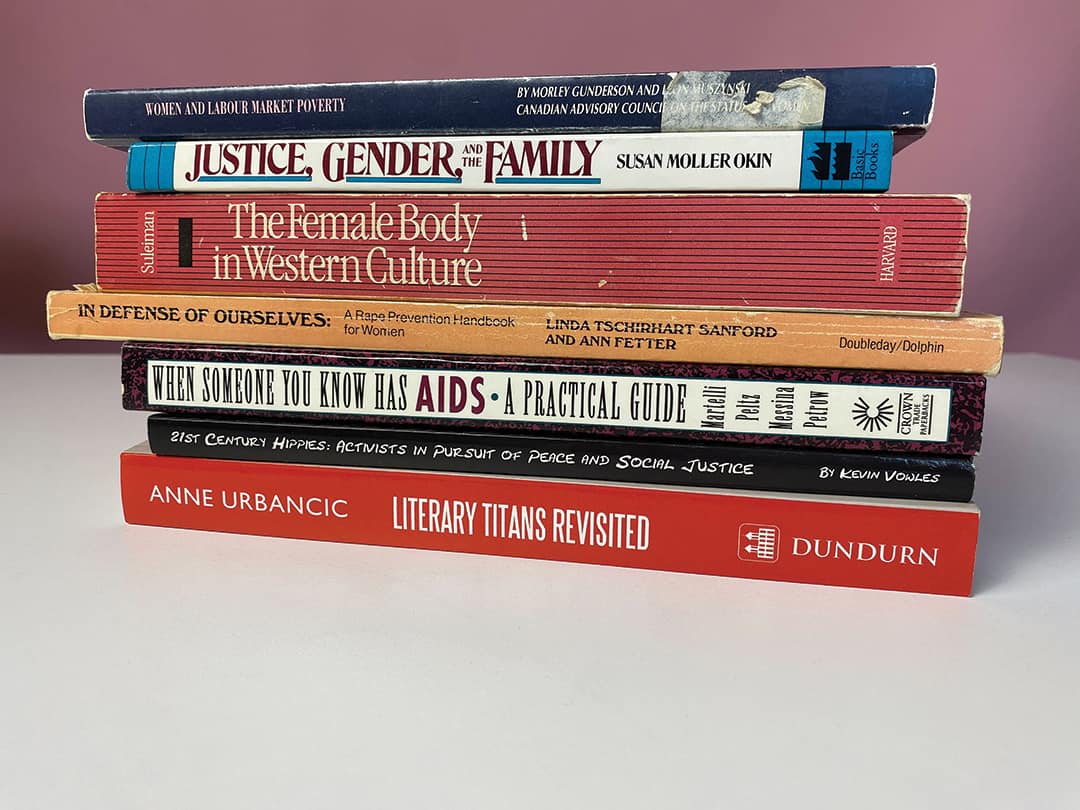On January 31, the Women and Gender Studies Institute (WGSI) held a panel discussion where WGSI faculty members and alumni shared their experiences in the institute. With 215 people packed into the William Doo Auditorium, the 10 panellists discussed the institute’s beginnings, impacts, and direction for the future.
A brief history of the WGSI — challenges and successes
In 1971, a teaching group established one of the first women and gender studies courses at U of T, called “Women in the Twentieth Century.” Ceta Ramkhalawansingh — an undergraduate student at the time — was one of the group’s members, and spoke about her experiences on the panel. She told the crowd about the WGSI’s history from her own perspective, and the challenges and successes the group faced when setting up that early Women and Gender Studies (WGS) course.
“Each of us took turns from our own discipline… we became each other’s teachers.”
After the Interdisciplinary Studies Department agreed to host the course, the group faced difficulties finding a faculty sponsor. “Not a single faculty member on the St. George campus was willing to touch [women’s] studies,” Ramkhalawansingh recalled during the panel. Eventually, the group found an American faculty member from the Scarborough campus to be the “titular head of the program.”
Curriculum posed another challenge — Ramkhalawansingh told the audience that they couldn’t find a consolidated body of information for the course to cover. “We had to develop everything,” she shared. “Each of us took turns from our own discipline… we became each other’s teachers.” Despite the challenge, she told the crowd that their ability to teach one another exemplified success for the teaching group.
Along with the course, the teaching group held a series of free public lectures that year, attended by over 250 people. “We had experts from all over the community who came and gave lectures on health, politics, literature, and so on. And it was that success from the first year that led [other] departments to offer additional courses,” Ramkhalawansingh said.
Memories from the WGSI
The panellists shared various memories from being a part of the WGSI as faculty members and students.
Mary Nyquist — the 1983–1991 director of the WGS program, which, at the time, only existed at the UTSG campus — recalled a specific moment from setting up the WGS program. “One of my colleagues in the English department introduced me as someone working in ‘clit lit.’ And I sort of thought, after that, I can deal with any resistance,” she told the laughing crowd.
Nyquist also shared that she had male colleagues who couldn’t directly look at her because of her involvement in WGS: “They were just so embarrassed at the existence of someone who was in women and gender studies.”
Casey Mecija — who graduated from the Doctoral Program in Women and Gender Studies in 2020 and now works as an assistant professor in the Department of Communication and Media Studies at York University — recalled how much it meant to her when peers attended the release of her music album, called Psychic Materials, when she was a PhD student. “I remembered being surprised and deeply touched to see many of my classmates and WGSI faculty [members] at the show that day. It meant so much to have the department’s support,” she recalled.
Angie Fazekas — an assistant professor in the teaching stream at WGSI — said that when they chose a PhD program, U of T’s WGSI stood out to them because it allowed them to “combine cultural studies, queer storytelling, and transnational and postcolonial theory.”
In an email with The Varsity, Fazekas wrote, “[WGSI seems] to attract a cohort of students in this program who are not only brilliant and creative but also deeply invested in global change and activism. It’s very inspiring to learn and work with them.”
Takeaways from the WGSI event
Fazekas wrote that their “biggest takeaway” from the panel discussion was “the incredible amount of work and passion” that faculty members have put into crafting and sustaining the program. “So many people, working so hard, came together to create and grow WGSI,” they wrote. “The event felt like a celebration and an expression of gratitude for their work.”
Fazekas also enjoyed when audience members — some of them current and former WGSI students — shared their own memories of studying at the WGSI. “We had several students who had been in the program from the 1970s up to today who shared how this program touched them and changed their lives,” they wrote. “That was incredibly meaningful as a teacher to know the impact this program can have on the lives of our students.”
Claire Li, a third-year student studying psychology and women and gender studies, attended the event because it was offered as an extra-credit opportunity in one of their courses, WGS360 — Making Knowledge in a World that Matters. In an email to The Varsity, they shared a reflection they submitted for their class discussion.
“It was incredibly touching and beautiful to hear former students share the impact that the WGS program has had on them,” Li wrote. “The speakers emphasized that progress is a continuous process by students, faculty, and community members alike.”



No comments to display.